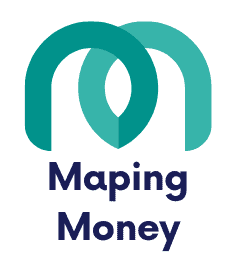3 Best Tips for Crafting Your Personal Budget
To craft your personal budget effectively, start by evaluating your income and expenses. Gather all your financial documents and categorize your expenses into fixed and variable costs. Next, set clear savings goals using the SMART framework—make them specific and achievable, like saving for a vacation. Finally, review and adjust your budget regularly. Track your spending, compare it to your goals, and don’t hesitate to modify it as your financial situation changes. Keeping flexible will help you stay on track and motivated. There’s much more to discover about successful budgeting strategies.
Key Takeaways
- Gather all financial documents to track income and categorize expenses for a clear understanding of your financial situation.
- Set SMART savings goals to stay focused and motivated in your budgeting efforts.
- Create a realistic budget by balancing fixed and variable costs while leaving room for savings.
- Regularly review and adjust your budget to reflect changes in income or unexpected expenses.
- Celebrate small milestones to maintain motivation and reinforce your commitment to your financial goals.
Assess Your Income and Expenses
To effectively evaluate your income and expenses, start by gathering all relevant financial documents in one place. This means collecting pay stubs, bank statements, bills, and any receipts that reflect your financial activities. When you have everything organized, you can clearly see how much you earn versus how much you spend.
Next, track your income sources, whether it’s your salary, freelance work, or side hustles. List these out, as understanding your total income is essential to achieving financial freedom. Then, categorize your expenses: fixed costs like rent and utilities, and variable costs like groceries and entertainment. This will help you identify patterns in your spending habits.
Don’t shy away from honesty; face the numbers without judgment. If you notice areas where you’re overspending, consider what changes you can make. Remember, this isn’t a punishment; it’s a step toward liberation. You’re regaining control over your finances, and that’s empowering. By evaluating your income and expenses, you’ll lay a solid foundation for managing your money effectively, paving the way for your financial goals and aspirations. You’ve got this!
Set Clear Savings Goals
Establishing clear savings goals is an essential step in your budgeting journey. When you set specific, measurable, achievable, relevant, and time-bound (SMART) goals, you’re not just dreaming; you’re creating a path toward your financial freedom. Start by identifying what you’re saving for—whether it’s a vacation, a new car, or building an emergency fund. Having a clear target makes it easier to stay motivated.
Next, determine how much you need to save and by when. Break it down into manageable monthly contributions. For instance, if you want to save $1,200 for a trip in a year, set aside $100 each month. This approach keeps your goals tangible and within reach.
Don’t forget to celebrate your achievements along the way, no matter how small. Each milestone brings you closer to your ultimate goal, reinforcing your commitment to financial liberation.
Lastly, keep your goals visible. Write them down or set reminders on your phone. This constant reminder will inspire you to stay focused, making your financial dreams a reality. Remember, you have the power to shape your financial future—take that first step today!
Review and Adjust Regularly

As you work towards your savings goals, regularly reviewing and adjusting your budget is essential for staying on track. Life changes, and so should your budget. By consistently checking in on your finances, you empower yourself to make informed decisions that support your financial freedom. Here are four steps to guide your review process:
- Track Your Spending: Keep an eye on where your money goes each month. Identify any patterns that need adjustment.
- Compare Actuals to Goals: Look at your actual spending against your original budget. Are you on target, or do you need to recalibrate?
- Adjust for Changes: If you’ve experienced a change in income or unexpected expenses, modify your budget accordingly. Flexibility is key!
- Celebrate Progress: Acknowledge your achievements, no matter how small. Celebrating milestones fuels your motivation to stay focused.
Frequently Asked Questions
What Tools Can I Use for Budgeting Effectively?
For effective budgeting, you can use apps like Mint or YNAB, spreadsheets, or even pen and paper. Find what resonates with you, and track your income and expenses to gain control over your finances.
How Do I Handle Irregular Income in My Budget?
When you handle irregular income, prioritize essentials first. Create a baseline budget using your lowest income month. Save extra earnings in a cushion fund, so you’re prepared for leaner times. Flexibility’s key to your financial freedom.
Can I Include Debt Repayments in My Budget?
Absolutely, you can include debt repayments in your budget! It’s essential to prioritize these payments to achieve financial freedom. By doing this, you’re taking control of your finances and moving toward a debt-free future.
How Often Should I Review My Expenses?
You should review your expenses monthly. This keeps you aware of spending habits and allows you to adjust quickly. Regular check-ins empower you to stay on track and maintain control over your financial freedom.
What Should I Do if I Exceed My Budget?
If you exceed your budget, don’t panic. Reflect on where you overspent, adjust your spending habits, and prioritize essential expenses. Embrace this as a learning opportunity to regain control and empower your financial freedom.







